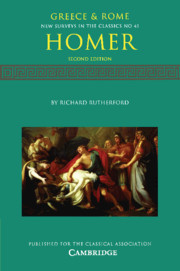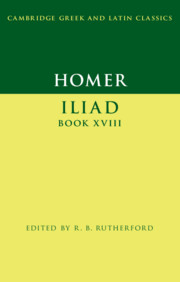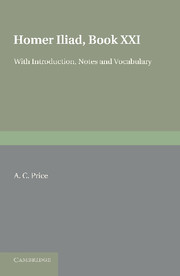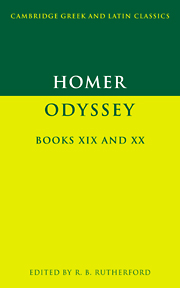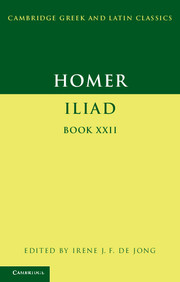Homer
This is a revised and updated version of the survey on Homer which the author originally published in 1996. It provides a wide variety of readers with a clear and detailed introduction to the Iliad and the Odyssey, and to the problems which arise in dating, contextualising and interpreting these two epics, which are among the earliest poetic texts to come down to us from the ancient Greek world. A substantial introductory chapter discusses the so-called Homeric Question, the question of the identity and origins of 'Homer'. Among the important topics considered are the debate over oral composition, the structure, plot and themes of the two epics, and the religious and ethical ideas which figure in the poems; also discussed are characterisation, speeches, similes, symbolism and irony. An extensive bibliography gives expert guidance on these and many other aspects of these extraordinary poems.
- Provides a broad survey of a complex field with useful subdivisions and indexing
- Assumes little basic knowledge; provides clear explanations and extensive guidance on further reading
- Provides a clear and detailed introduction to the Iliad and the Odyssey, and to the problems which arise in dating, contextualising and interpreting these two epics
Product details
May 2013Paperback
9781107670167
174 pages
234 × 155 × 7 mm
0.27kg
Available
Table of Contents
- Preface
- Part I. Introduction: Background and Problems:
- 1. History, myth, poetry
- 2. Poems behind poems
- 3. Poetic language
- 4. Light from the East?
- 5. Early Greek hexameter poetry
- 6. Dating the poems
- 7. The debate on the oral epic tradition: Milman Parry and his followers
- 8. But could Homer write?
- 9. Sixth-century Athens
- 10. Text and scholars
- 11. Reception and interpretation
- Part II. The Iliad:
- 12. Structure, characterisation, themes
- 13. War and the hero
- 14. Gods and men
- 15. Choices and consequences
- Part III. The Odyssey:
- 16. Must a sequel be inferior?
- 17. Themes, structure, ethos
- 18. Men, women and goddesses
- 19. Endings
- Part IV. Some Memorable Scenes:
- 20. Paris's bedchamber (Iliad 3. 424–47)
- 21. Phoenix's memories (Iliad 9. 478–97)
- 22. Patroclus brought low (Iliad 16. 777–800)
- 23. The horses of Achilles, gifts of the gods (Iliad 17.426–53)
- 24. News comes to Achilles (Iliad 18. 15–37, 50–1)
- 25. The pride of Ajax (Odyssey 11. 543–67)
- 26. Monster and man (Odyssey 12. 243–59)
- 27. Travel and adventure (Odyssey 14. 196ff. (extracts))
- Bibliographical note
- Bibliography
- About the author
- Index.

